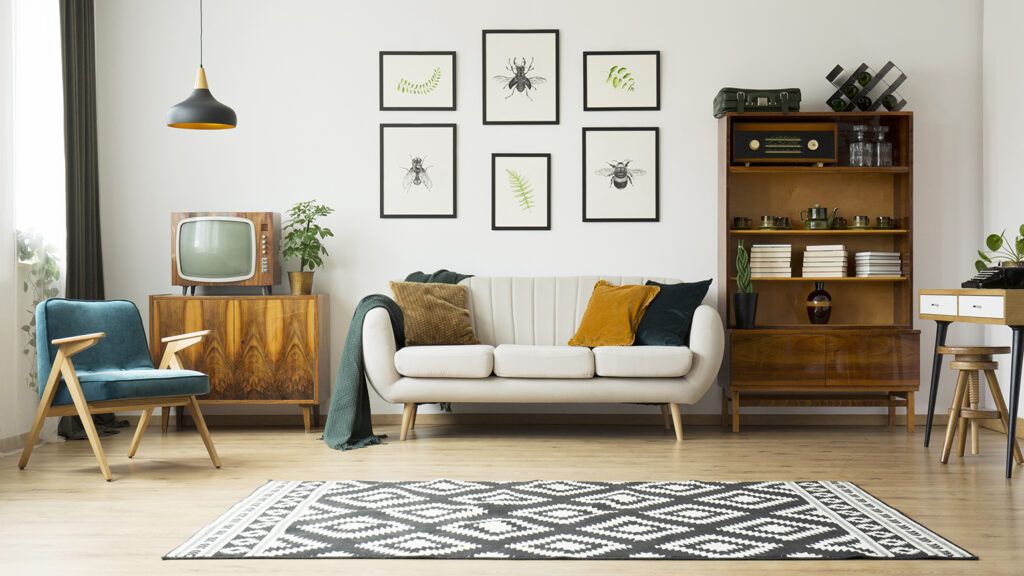Some people find their calling in school, at work or on a mission trip. I discovered my calling in my cousin’s kitchen. Sheila was throwing a dinner party and I went to her house early to help with the food. We put the lemon chicken in the fridge to marinate, and Sheila got started on the Assyrian rice. “Can you grab some containers out of there?” she asked, pointing to a cabinet. I opened it and was greeted by a Tupperware avalanche. “Sheila,” I said, “let me straighten up here.” In a few minutes I had containers matched with their lids and stacked in the cabinet according to size, as if some super-organizing part of my brain had just taken over.
“While you’re at it,” Sheila joked, “want to do the utensil drawer too?”
“Sure,” I said. The utensils took a bit longer, but I was on a roll. Next I tackled spices scattered on four shelves. Then her toddler’s plates, cups and spoons, jumbled in a heap. For two hours, till other guests arrived, I worked on my cousin’s kitchen. I had fun too.
“You could make a job of this,” she said at the end of the evening. That’s just what I did. I became a professional organizer. In the 10 years since that day in Sheila’s kitchen, I’ve helped all kinds of people—singles, couples, big families, empty-nesters, retirees—clear the clutter from their homes. They emerge not just better organized, but also lighter in spirit. It’s a lot easier to live a balanced life—a life focused on what matters to you—when you’re not weighed down by the stress of disorganization. Try these tips to tame the chaos. Come on, you’ve got nothing to lose but the clutter!
1. Start small.
I had a client who’d recently retired and finally had time to sort through all the possessions she’d accumulated over the years. “But I don’t know where to begin!” she cried.
“Pick one room,” I suggested. “Actually, a section of one room.” She chose her bedroom closet, which (barely) contained more than 100 pairs of shoes. We sat there and went through one pair after another. “When was the last time you wore these loafers?” I asked. She couldn’t remember so I set them in the “no” pile. “What about these? Do they even fit?” She shook her head. Bye bye, pumps. I held up some red sandals that had never been worn. “I love those,” she exclaimed. “I’ll wear them, I promise!” Okay, they were keepers. It took us the whole day, but we cut her shoe collection by more than half. By day’s end we had a bunch of shoes for charity, and my client was feeling unburdened of possessions that were beginning to possess her.
Start with something small and simple. Like your sock drawer (if it doesn’t have a match, toss it). Next, your T-shirts. You’ll build momentum, and before you know it, your whole dresser will be organized. Just get started.
2. Use it or lose it.
Admit it. There are things you have that you never use, that you might have even forgotten about. That slow cooker (and those other duplicate wedding gifts) in the attic. The bikes your kids outgrew. Grandma’s bedroom set gathering dust in storage. Don’t feel obligated to hold on to something just because it was given to you. If you don’t love it or need it, why keep it? There’s probably someone who would like that slow cooker and more to the point, actually use it.
People waste thousands of dollars a year on storage spaces because they keep things they have no use for. “I might want it a few years from now,” they say. How about donating or selling those items and putting the money you would’ve spent on storage into your emergency fund? Then if rainy days come, you’ll have enough to cover your needs. (What good is Grandma’s bedroom set going to do when what you really need is cash to pay for car repairs?) This isn’t just a principle of organization. It’s good stewardship.
3. Sort it.
Go through your mail every day. Recycle junk mail right away—that’s anything you won’t read or need later. If you’re not going grocery shopping this week, the Stop&Shop flyer goes in the bin. Any issue of a magazine on a topic you’re not interested in—give it to someone who is or get rid of it.
As for the things you’ll need later, before you fill up another file, consider: Is there anywhere else you can get the same information? You’ll want to save insurance claims until your doctor’s bill comes, but you can get your bank statements online, so don’t hold on to those. For years, my mom kept papers in boxes in the garage. A rainstorm and a leaky roof ruined them all. Guess what? She hasn’t had reason to miss a statement, form, receipt or letter lost in that mess.
4. Get the kids in the game.
Make organization a game. Sheila’s six-year-old can set a table faster than you can say “fork, napkin, knife and spoon.” Challenge your children or grandchildren to a competition. Who can put their shoes away fastest? Who can be the first to get their toys off the floor? One of my clients wanted to teach her son how to put away his laundry. He couldn’t read yet so they drew pictures together—a shirt, a sock, a pair of pants—and used them to label his dresser drawers. They had a ball.
Kids can handle a lot of responsibility. Little ones like to emulate their parents. Avoid doing things for them even if it’s faster. Your daughter will never learn her coat doesn’t belong on the floor if you’re always hanging it. With teens, well, there comes a time when you have to close their bedroom door. Sooner or later—when they can’t find their take-home history test or that permission slip—they’ll get with your organizational program (or at least ask you for help).
5. Give it away.
De-cluttering your house isn’t just a way to do yourself a favor. It’s also a way to share your blessings and help make the world a better place. Those old gym shoes? Don’t send them to a landfill. Nike’s Reuse-A-Shoe program turns your sneakers into flooring used in running tracks, basketball courts and playgrounds. Collectivegood.com takes cell phones and refurbishes them for use in developing countries.
One neat trick: I keep a basket in my closet. Anything that doesn’t fit or hasn’t been worn in the past year goes into the basket. When it’s full, I donate what I’ve got. There are tons of places that will take unwanted items—the Salvation Army, Goodwill, your church or synagogue.
Taking small steps each and every day will help you get organized. Once you’re there, just 10 to 15 minutes a day will keep you that way.
Clear the clutter and you’ll turn your home into the sanctuary it was always meant to be. Your spirit will be lighter for it too.






